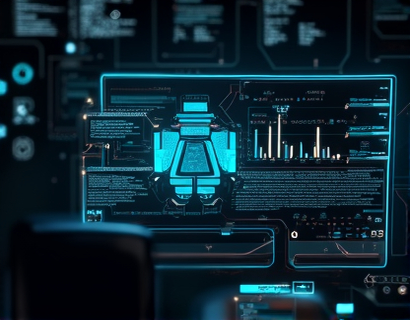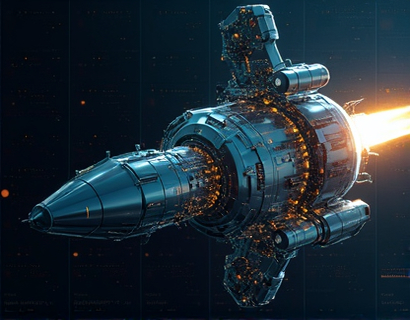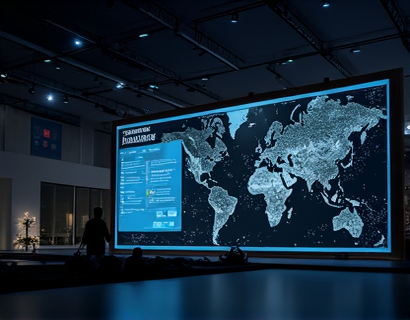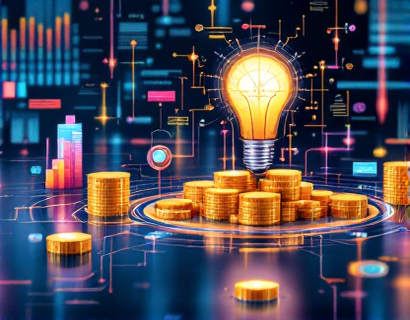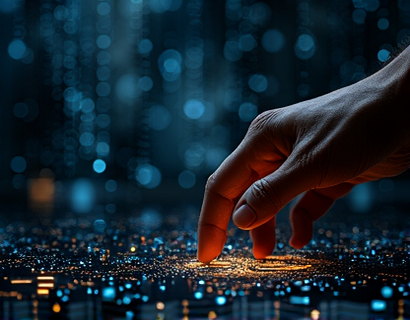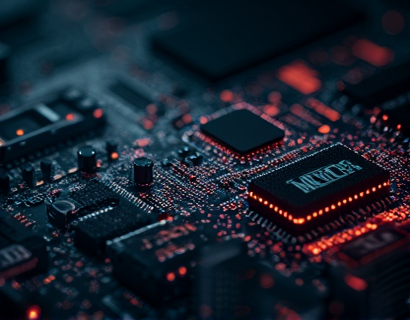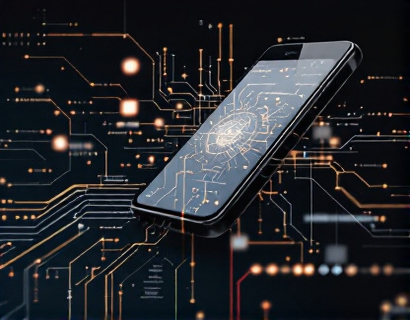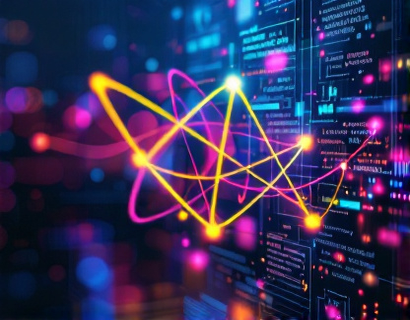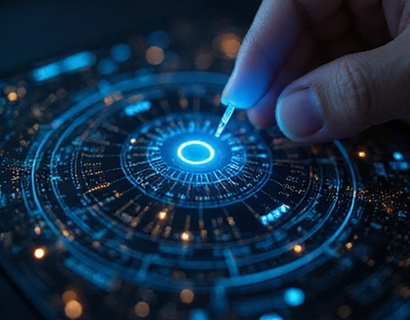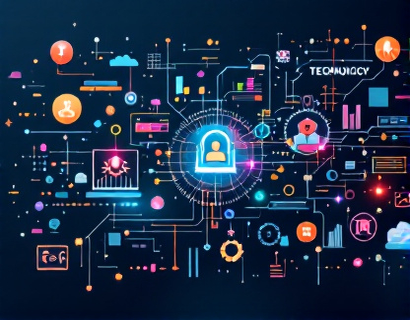Decentralized Transformation: Harnessing AI and Crypto for the Future of Digital Solutions
The intersection of artificial intelligence (AI) and cryptocurrency is giving rise to a new era of decentralized digital solutions. This transformation is not just about technological advancements but a fundamental shift in how we perceive and interact with digital services. The fusion of AI and crypto is creating a robust ecosystem where decentralized applications (dApps) and services are becoming more intelligent, secure, and user-friendly. This article explores the profound impact of this merger, focusing on how it enhances user experience and engagement, and what the future holds for interconnected apps and services.
The concept of decentralization has been around for decades, primarily associated with blockchain technology. However, the integration of AI into this framework is a relatively new and exciting development. Traditional centralized systems rely on a single point of control, which can lead to bottlenecks, security vulnerabilities, and limited scalability. Decentralized systems, on the other hand, distribute control across a network, enhancing resilience and user autonomy. When AI is added to this mix, the potential for innovation becomes immense.
Enhanced User Experience through AI-Driven dApps
One of the most significant benefits of combining AI and decentralization is the enhancement of user experience. AI algorithms can analyze vast amounts of data to provide personalized recommendations, streamline workflows, and offer intuitive interfaces. In a decentralized environment, these capabilities are not limited by central servers, ensuring that users receive seamless and responsive services regardless of their location or device.
For instance, AI-powered chatbots on decentralized platforms can handle customer inquiries 24/7, providing instant and accurate responses. These chatbots can learn from user interactions, improving their performance over time. Additionally, AI can optimize the user interface based on user behavior, making applications more intuitive and user-friendly. This level of personalization and adaptability is a game-changer for user engagement.
Security and Trust in Decentralized Systems
Security is a paramount concern in digital transactions and data management. Decentralized systems inherently offer a higher level of security compared to centralized counterparts. The distributed nature of blockchain technology ensures that no single entity can manipulate the system, reducing the risk of hacks and data breaches. AI further enhances security by detecting and mitigating threats in real-time.
AI algorithms can monitor network activity, identify anomalies, and trigger alerts for potential security breaches. This proactive approach to security is crucial in a decentralized environment where trust is built through transparency and reliability. Users can have greater confidence in the systems they interact with, knowing that AI is continuously working to protect their data and transactions.
Smart Contracts and Automated Processes
Smart contracts are self-executing contracts with the terms of the agreement directly written into code. When combined with AI, smart contracts can become even more powerful and efficient. AI can analyze complex scenarios, predict outcomes, and automate decision-making processes within smart contracts. This synergy reduces the need for intermediaries, lowers transaction costs, and speeds up processes.
For example, in supply chain management, AI-driven smart contracts can automatically verify and execute transactions based on predefined conditions, such as the arrival of goods at a specified location. This not only increases efficiency but also ensures transparency and accountability throughout the supply chain. Users benefit from faster, more reliable services, while businesses can reduce operational costs and errors.
Decentralized Finance (DeFi) and AI
Decentralized Finance (DeFi) is a prime example of how AI and decentralization are transforming traditional financial systems. DeFi platforms offer a range of financial services, including lending, borrowing, and trading, all executed on blockchain networks. AI enhances these services by providing advanced analytics, risk assessment, and automated trading strategies.
AI algorithms can analyze market trends, predict price movements, and optimize investment portfolios. This level of insight is invaluable for users looking to make informed financial decisions. Moreover, AI can help detect and prevent fraudulent activities, ensuring the integrity of DeFi platforms. The combination of AI and decentralization in finance is paving the way for a more inclusive and accessible financial system.
Interoperability and Ecosystem Integration
One of the challenges in the decentralized space is interoperability between different blockchain networks and platforms. AI can play a crucial role in addressing this issue by developing intelligent protocols that facilitate seamless communication and data exchange. AI-driven middleware can translate and adapt data formats, ensuring that different systems can work together harmoniously.
This interoperability is essential for building a cohesive ecosystem where users can seamlessly transition between various services and applications. For instance, a user could start a transaction on one blockchain, have AI process and analyze the data, and then complete the transaction on another blockchain without any friction. This level of integration enhances user experience and fosters a more connected digital world.
Challenges and Considerations
While the potential of AI and decentralization is vast, there are several challenges that need to be addressed. One of the primary concerns is scalability. As the number of users and transactions increases, decentralized networks must be able to handle the load without compromising performance. AI can assist in optimizing network resources and predicting scalability issues, but significant technical advancements are still required.
Another challenge is regulatory compliance. The decentralized nature of these systems can make it difficult to adhere to traditional regulatory frameworks. AI can help navigate these complexities by providing real-time compliance monitoring and ensuring that transactions meet legal requirements. However, ongoing collaboration between technologists, regulators, and policymakers is essential to create a balanced and supportive environment.
Future Prospects and Innovations
The future of decentralized digital solutions powered by AI and crypto is promising. As technology continues to evolve, we can expect even more innovative applications and services. One area of focus is the development of AI-driven decentralized autonomous organizations (DAOs), which combine the power of AI with the governance models of decentralized networks. DAOs can make collective decisions based on data-driven insights, enhancing transparency and democratic processes.
Additionally, the integration of AI with the Internet of Things (IoT) within decentralized frameworks can lead to smarter, more autonomous systems. For example, AI can optimize energy usage in smart homes, while decentralized networks ensure that data is securely and efficiently managed. The possibilities are vast, and the synergy between AI and decentralization will continue to drive significant advancements in various industries.
In conclusion, the merging of AI and cryptocurrency is revolutionizing the digital landscape. By enhancing user experience, ensuring security, automating processes, and fostering interoperability, this combination is paving the way for a more decentralized and intelligent future. As we move forward, it is crucial to address the challenges and continue innovating to unlock the full potential of this transformative technology.













